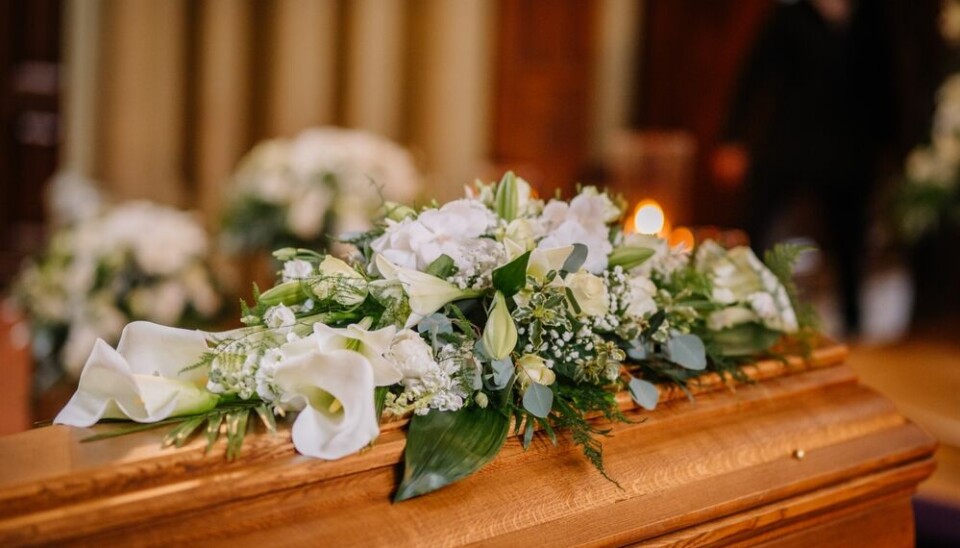When dealing with a death there are a number of administrative tasks that need to be promptly undertaken.
Note that this question only deals with the immediate steps. An article explaining additional administrative tasks which must be undertaken (within the first month and year) can be found below.
Read more: Key financial steps to take after the death of family member in France
What to do within the first 24 hours
The first thing you will need to do is get proof of death which is required to obtain a death certificate and to start planning for the funeral.
If the person dies at their home, you should call a doctor, the SAMU on 15 or SMUR (Service Mobile d'Urgence et de Réanimation) on 112 to come to the home.
All medical professionals can issue a notice of death (certificat de décès).
If the person dies in a hospital or other medical facility, or in an Ehpad (elderly resident’s home), they will take care of much of the administration, including providing the notice.
Note that despite its name in French this is not the official document needed to complete administrative tasks but the paper needed to prove the death to local authorities. This is needed to obtain a death certificate.
In cases where the death was as a result of murder, suicide, mortal accident etc or suspicious the police or gendarmes should be called. They can provide a notice of death as well as open up an investigation into the death.
For an accidental death in public (road accident, etc) the above rules apply and you can obtain a notice if the person is pronounced dead at the scene.
Obtaining a death certificate
Once you have a notice of death you will need to inform the person’s local mairie. This is the mairie of their main residence not of the location of the death if this happens to be elsewhere.
For a death in a medical facility, Ehpad, or in public, this step should be completed by the appropriate responsible staff members (police, nurses, etc).
However, make sure to confirm with them they are declaring the death so you know from where you can collect the death certificate or if they will send it to you directly from the mairie.
If the person dies at home, or for any other reason you need to declare the death yourself, you do so directly to the mairie.
If you begin the process quickly enough a funeral director may contact the mairie for you.
You will need copies of the notice of death, ID of the deceased, and their livret du famille. If you do not have access to this, you will probably need a second piece of ID instead showing the person’s état civil, such as a birth or marriage certificate or their passport.
An official death certificate (acte de décès) will then be created and given to you. This is generally the document that services ask for as proof of death when closing accounts, etc.
You should ask the mairie to make as many copies of this as you think necessary – the general recommendation is to make at least a dozen, as some places keep the copy they request and do not return it to you.
You should be able to ask for more from the mairie at a later date if required.
It is also a good idea to collate as many documents as possible from the deceased – ID, official documents, their will, bills, contracts, pension information etc as these may be needed in the following days or weeks.
Read more: How long do I need to keep old French documents?
What to do within the first six days
You will need to make funeral arrangements.
If the deceased had a funeral plan (contrat obsèques) you will need to inform the plan provider of the death. They should release the funds to a designated person or funeral directors within three days.
There is a list of providers available from the local mairie if you are arranging the funeral yourself. You can ask two or three providers about their services and costs, it should be free to do so.
The funeral directors can make all of the technical arrangements for the funeral including asking for the authorisation of where to lay the body to rest.
You have the option to choose either a burial or cremation in France but note that rules on keeping ashes are different than in many other countries.
Read more: Can I keep partner's ashes at home with me in France?
The actual burial or cremation needs to take place within the first six days of death, according to article R2213-33 of the Local Authorities Code (Sundays and bank holidays do not count towards this timing).
However, there are some exceptions where this can be extended (such as for family to arrive for the funeral or a crematorium being unavailable at the time of death).
In these circumstances, a dérogation to extend this time period is needed, which must be sent to the local police prefect. This is usually handled by the funeral director managing the burial or cremation.
The cost of the funeral will either be paid through a death insurance plan or through private funds.
Read more: Explainer: burials, cremations and funerals in France
You can ask a bank to release funds from the deceased’s account to cover funeral costs. This is usually capped at a limit of €5,000. Other than for this purpose bank accounts are usually blocked until the deceased’s inheritance has been enacted.
The Cnav (Caisse nationale d'assurance vieillesse) may also provide partial funding for the funeral, up to a limit of €2,286.74, if the deceased was owed money from them.
If the deceased was still working, you can ask the Cpam (caisse primaire Assurance Maladie) for a contribution towards funeral expenses.
Both of these requests are made after the funeral has taken place.

























